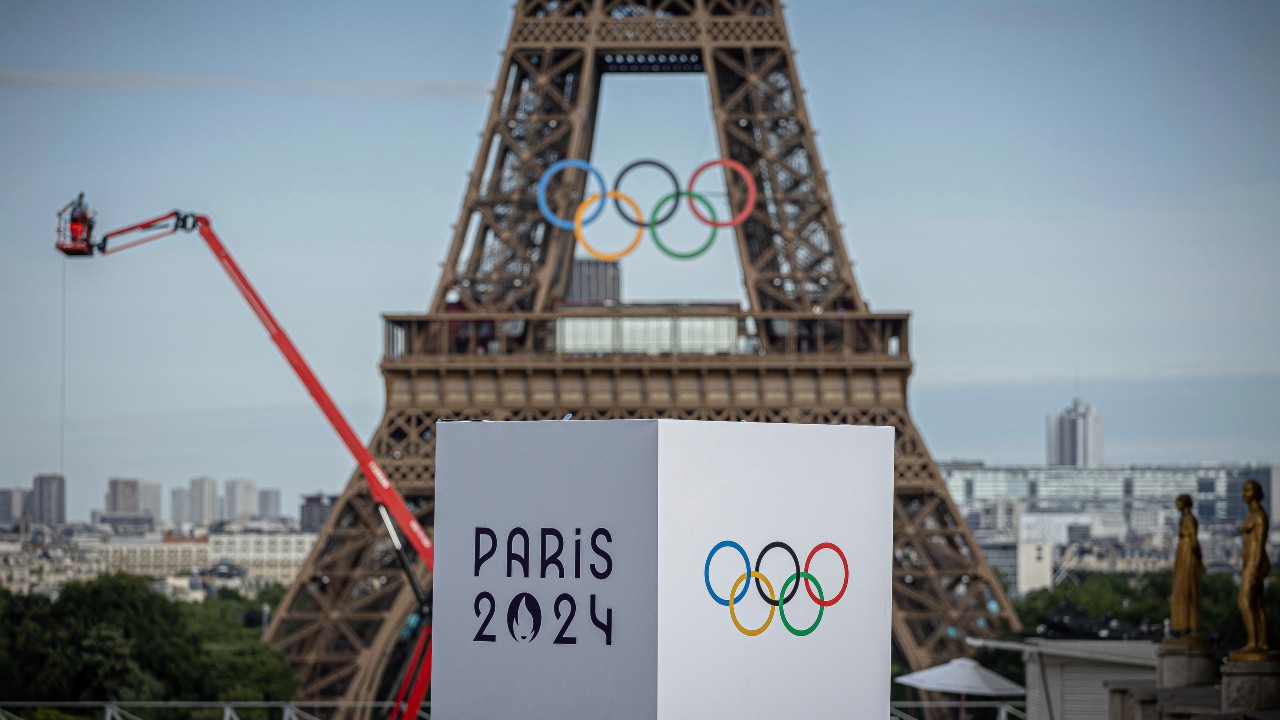
BEIJING — China is trying to fight fire with fire in the face of persistent doping allegations that have dogged its swimmers at the Olympics in Paris.
The China Anti-Doping Agency called Thursday for more intensive testing of American track and field competitors, citing in a news release past doping scandals and questioning how the U.S. Anti-Doping Agency handled them.
Repeated blasts from the Chinese agency have been echoed by reports in the government-controlled state media complaining about double standards applied to Chinese competitors. The reports have highlighted the more than 600 tests undergone by Chinese swimmers at the Paris Games with no violations found.
The World Anti-Doping Agency and World Aquatics have acknowledged that 23 Chinese swimmers tested positive for a banned substance ahead of the Tokyo Olympics. The results were not made public until revealed by media reports earlier this year, with both bodies accepting the Chinese explanation that the positive tests were caused by tainted food.
After the details emerged, the U.S. launched an investigation under a law passed in 2020 giving federal authorities power to investigate sports doping and cover-ups.
In a meeting in Paris this week, the head of the China’s Olympic delegation told his American counterpart that China hopes the U.S. will stop its “long-arm jurisdiction” and ensure that athletes from all countries can participate smoothly and safely in the 2028 Summer Games in Los Angeles and the 2034 Winter Games in Salt Lake City, according to an account in an official Chinese sports newspaper.
China’s anti-doping agency and its state media have zeroed in on an American sprinter, Erriyon Knighton, who was competing Thursday in the 200-metre finals. Knighton tested positive for a banned substance in March but the U.S. Anti-Doping Agency said an arbitration panel determined it came from contaminated meat, allowing him to compete.
The Chinese agency issued a release Tuesday accusing the U.S. agency of double standards. It followed up Thursday with the release calling for more testing of U.S. track and field competitors.
Some competitors from other countries spoke out about the controversy as China won 12 medals in swimming in Paris, including a gold in the men’s 4×100 medley relay that ended a decadeslong U.S. dominance of that event. Chinese swimmers have denied cheating.
U.S. swimming legend Michael Phelps doubled down on his support for tougher sanctions, including a lifetime ban for anyone who tests positive for a banned substance.
British swimmer Adam Peaty, whose team missed out on a medal by finishing fourth in the relay, blasted a system that allowed the Chinese swimmers who tested positive to compete.
“As an honourable person, I mean, you should be out of the sport,” he said, “but we know sport isn’t that simple.”
China has responded to accusations made by the United States regarding doping in the Olympics, stating that they take the issue of doping very seriously and have strict measures in place to prevent it.
The accusations were made by the U.S. Anti-Doping Agency (USADA), which claimed that Chinese athletes were using performance-enhancing drugs to gain an unfair advantage in the Olympics. In response, China’s General Administration of Sport released a statement denying the allegations and emphasizing their commitment to clean competition.
According to the Chinese sports authority, they have a zero-tolerance policy towards doping and have implemented comprehensive anti-doping measures to ensure fair play in sports. These measures include regular testing of athletes, education programs on the dangers of doping, and cooperation with international anti-doping agencies.
China has also emphasized that they have a strong track record of clean competition, with many of their athletes achieving success through hard work and dedication. They have called on the U.S. to provide evidence to support their claims and have expressed willingness to cooperate with any investigations into the matter.
The dispute between China and the U.S. highlights the ongoing challenges faced by the international sports community in combating doping. Both countries have a responsibility to uphold the integrity of sports and ensure a level playing field for all athletes. It is important for them to work together to address any concerns and maintain the spirit of fair competition in the Olympics and other sporting events.